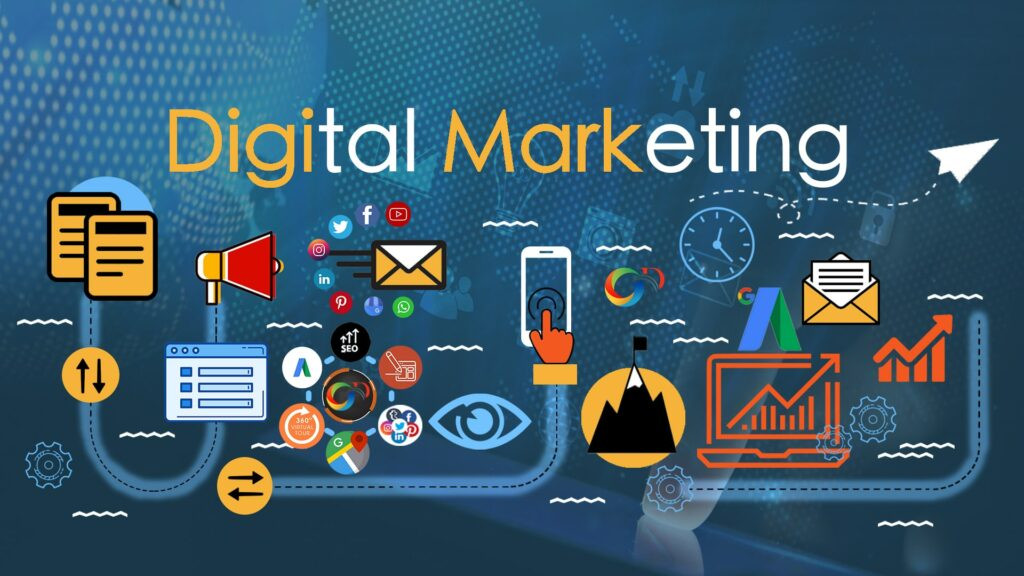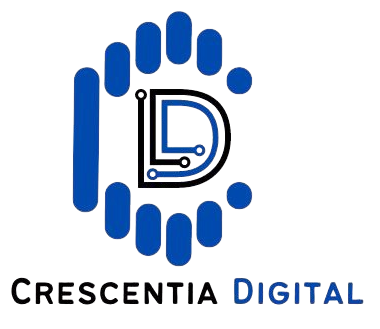In today’s connected world, digital marketing is not just an option; it’s a necessity for any business aiming to thrive. With the internet and technology at our fingertips, businesses have the unprecedented power to reach a global audience, generate leads, and drive sales, all from a digital platform. But what exactly is digital marketing, and how can you leverage it for success? Here’s everything you need to know to get started.
What is Digital Marketing?
Digital marketing refers to all marketing efforts that use an electronic device or the internet. Businesses leverage digital channels like search engines, social media, email, and websites to connect with current and prospective customers. In contrast to traditional marketing, digital marketing enables highly targeted and interactive engagement with audiences.
Key Components of Digital Marketing:
Analytics and Data Tracking: Understanding your customer behavior and engagement through data tracking is essential for refining and optimizing your campaigns.
Search Engine Optimization (SEO): Optimizing your website to rank higher on search engines like Google. It’s the process of making your site more appealing to search engines by using keywords, backlinks, and quality content.
Content Marketing: Creating valuable and relevant content to attract and engage a specific audience. It includes blogs, videos, infographics, and other forms of media that offer value and build trust.
Social Media Marketing: Using platforms like Facebook, Instagram, LinkedIn, and Twitter to promote products or services, engage with customers, and build brand awareness.
Pay-Per-Click Advertising (PPC): A model of internet marketing where advertisers pay a fee each time one of their ads is clicked. Google Ads is a popular PPC advertising system that can deliver highly targeted traffic to your website.
Email Marketing: Sending emails to your target audience to nurture relationships, offer promotions, and keep your audience updated about your business.
Influencer Marketing: Collaborating with influencers who have a substantial following in your target market can help amplify your brand’s reach and authenticity.
Affiliate Marketing: A performance-based strategy where you pay affiliates a commission for promoting your product. It’s a great way to reach new audiences with minimal upfront cost.

What is Digital Marketing?
Digital marketing refers to all marketing efforts that use an electronic device or the internet. Businesses leverage digital channels like search engines, social media, email, and websites to connect with current and prospective customers. In contrast to traditional marketing, digital marketing enables highly targeted and interactive engagement with audiences.
Key Components of Digital Marketing:
- Search Engine Optimization (SEO): Optimizing your website to rank higher on search engines like Google. It’s the process of making your site more appealing to search engines by using keywords, backlinks, and quality content.
- Content Marketing: Creating valuable and relevant content to attract and engage a specific audience. It includes blogs, videos, infographics, and other forms of media that offer value and build trust.
- Social Media Marketing: Using platforms like Facebook, Instagram, LinkedIn, and Twitter to promote products or services, engage with customers, and build brand awareness.
- Pay-Per-Click Advertising (PPC): A model of internet marketing where advertisers pay a fee each time one of their ads is clicked. Google Ads is a popular PPC advertising system that can deliver highly targeted traffic to your website.
- Email Marketing: Sending emails to your target audience to nurture relationships, offer promotions, and keep your audience updated about your business.
- Influencer Marketing: Collaborating with influencers who have a substantial following in your target market can help amplify your brand’s reach and authenticity.
- Affiliate Marketing: A performance-based strategy where you pay affiliates a commission for promoting your product. It’s a great way to reach new audiences with minimal upfront cost.
- Analytics and Data Tracking: Understanding your customer behavior and engagement through data tracking is essential for refining and optimizing your campaigns.
Benefits of Digital Marketing
- Cost-Effectiveness: Digital marketing often requires a smaller investment than traditional forms of advertising. You can set budgets and spend only when there is action, such as PPC advertising or social media ads.
- Targeted Marketing: Digital platforms allow you to target specific demographics based on age, location, interests, and online behavior, ensuring you reach the people most likely to convert.
- Real-Time Data and Analytics: With digital marketing, you have immediate insights into the performance of your campaigns. This data helps you make informed decisions and optimize future campaigns for better results.
- Global Reach: Unlike traditional methods that are often limited by geography, digital marketing allows you to reach customers worldwide.
- Enhanced Customer Interaction: Channels like social media provide a direct line of communication between brands and customers, fostering trust and community around your brand.
How to Get Started with Digital Marketing
- Define Your Goals and Audience: Start by outlining what you want to achieve (awareness, leads, sales, etc.) and identify who your ideal customer is. This will guide your choice of channels, messaging, and budget.
- Develop a Content Strategy: Content is king. Create valuable, engaging, and consistent content that will appeal to your target audience and showcase your expertise.
- Choose Your Platforms: Decide where you’ll focus your efforts. For example, if you’re targeting professionals, LinkedIn may be the best platform, whereas visual brands might benefit more from Instagram.
- Invest in SEO: Organic search can bring a continuous stream of traffic. Make sure your website and content are optimized for search engines to increase visibility.
- Run Paid Campaigns: Platforms like Google Ads and Facebook Ads allow you to reach people who might not find you organically. Start with a small budget and analyze the results to understand what works best for your audience.
- Track Your Progress: Use tools like Google Analytics, Facebook Insights, and email marketing analytics to measure your performance. Monitoring helps you adjust and improve your campaigns over time.
Digital Marketing Trends to Watch in 2024
- Artificial Intelligence (AI) and Machine Learning: From chatbots to personalized recommendations, AI is transforming customer experiences.
- Voice Search Optimization: With the rise of voice-activated devices, optimizing for voice search is becoming increasingly important.
- Video Marketing: Short-form videos are highly engaging and are preferred by younger audiences on platforms like TikTok and Instagram Reels.
- Sustainability and Ethical Marketing: Consumers are now more conscious about the brands they support. Highlighting sustainable practices and ethical values can make a big difference.
- Augmented Reality (AR): AR allows customers to experience products virtually before purchasing, which is particularly popular in the beauty and home decor industries.
Conclusion
Digital marketing is essential for any business seeking to grow in today’s digital age. With the right strategies, you can connect with customers globally, increase brand awareness, and drive sales more efficiently than ever before. Remember, success in digital marketing isn’t about overnight results; it’s a marathon that requires consistency, experimentation, and adaptability.
Ready to start? By leveraging the tools and strategies of digital marketing, you’re opening up a world of possibilities for your business. Whether you’re a small startup or an established enterprise, there’s a place for you in the digital landscape.
